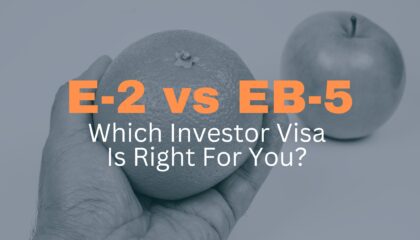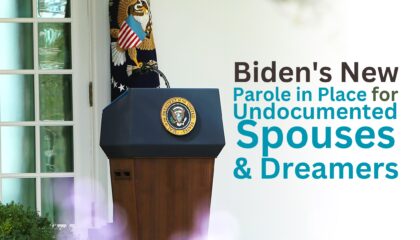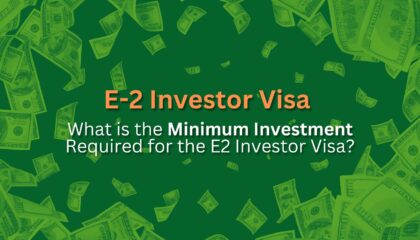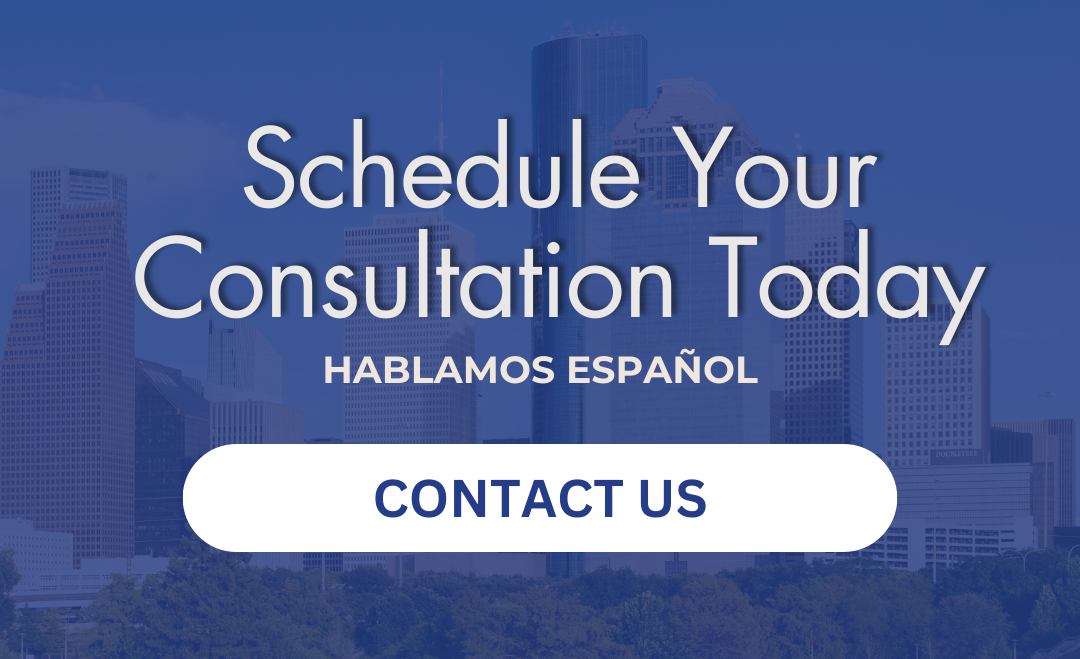EB-1 Extraordinary Ability
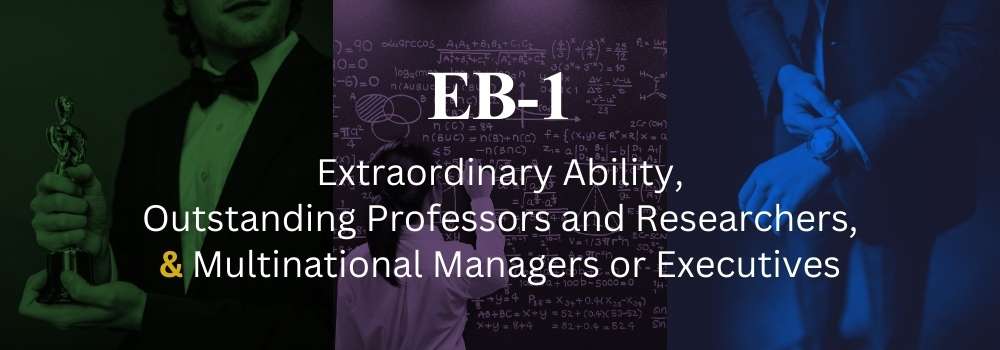
Table of Contents
- EB-1 Extraordinary Ability
What is the EB-1 Visa?
The EB-1 Visa, or Employment-Based First Preference Immigrant Visa, is composed of three categories designed for individuals who demonstrate extraordinary ability, are outstanding professors or researchers, or are multinational executives or managers. This visa category offers a direct path to permanent residency in the United States for individuals with exceptional skills and expertise.
The EB-1 Visa is a highly sought-after immigration option because it provides a direct route to obtaining lawful permanent residency (green card) in the United States, bypassing the need for a labor certification.
Who Qualifies for the EB-1 Visa?
The EB-1 Visa is tailored for individuals who excel in their respective fields. Eligibility criteria vary depending on the specific category:
- Extraordinary Ability: Individuals with extraordinary abilities in sciences, arts, education, business, or athletics may qualify.
- Outstanding Professors and Researchers: Individuals who are internationally recognized as outstanding in a specific academic area may qualify for the EB-1B Visa.
- Multinational Executives or Managers: Executives or managers who have been employed outside the U.S. by the same multinational firm, corporation, or other legal entity for at least one of the three preceding years in a managerial or executive capacity may qualify for the EB-1C Visa.
What are the Requirements for the EB-1 Visa?
Meeting the requirements for the EB-1 Visa involves demonstrating extraordinary ability, outstanding achievements, or multinational executive/managerial roles. Key criteria include:
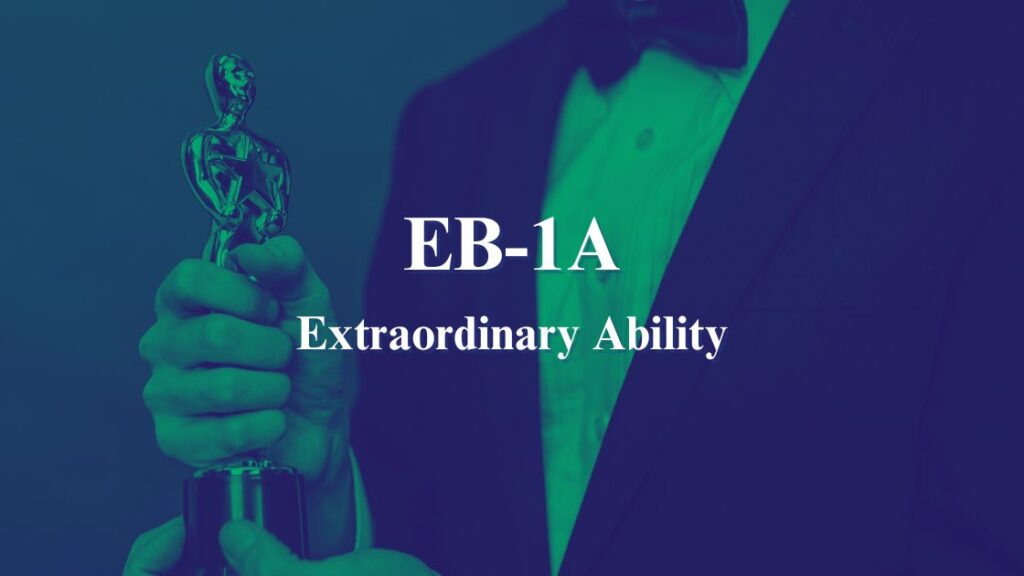
Extraordinary Ability (EB-1A)
- Sustained National or International Acclaim: To qualify, the individual must have a history of consistent recognition in their field, regardless of age. The petitioner must also show that their level of recognition has been maintained over time.
- Continuing to Work in the Area of Expertise: The beneficiary must intend to stay active in their field. In cases where their intended role differs from their previous acclaim, such as an athlete transitioning to coaching, their sustained recognition and achievements are taken into account.
- Entry to Substantially Benefit the United States: The individual’s entry should promise significant future advantages to the United States. Since there’s no fixed definition for “substantially benefit,” each case is evaluated based on its unique circumstances, with the possibility of a Request for Evidence (RFE) if needed.
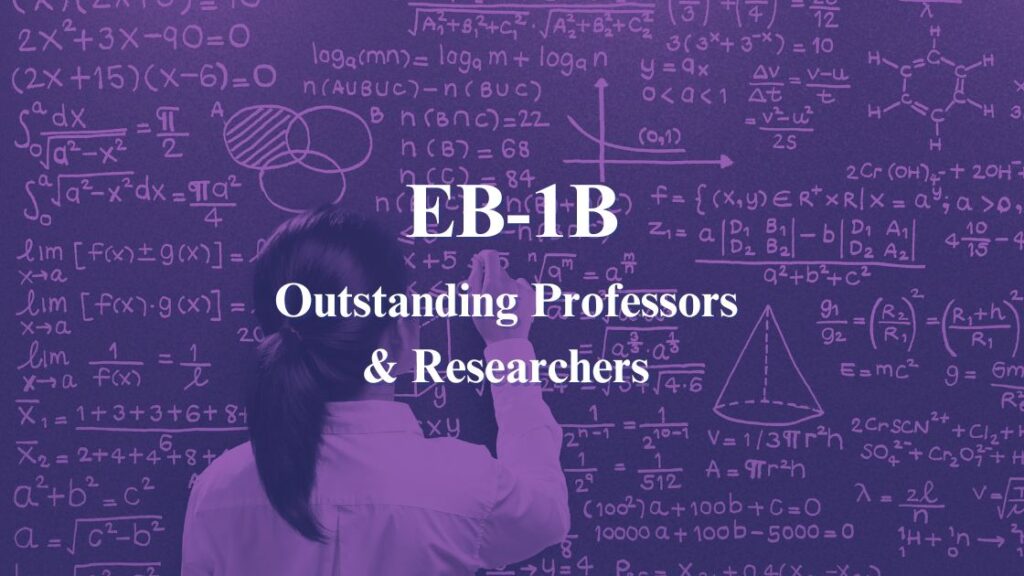
Outstanding Professors and Researchers (EB-1B)
- International Recognition for Outstanding Achievements: The applicant needs to provide evidence of their exceptional accomplishments in a specific academic field. This evidence may include publications, citations, peer reviews, awards, or letters of recommendation.
- Employment Offer in Academia: The applicant must have received an offer for a secure teaching position at a university or a similar research role. This offer should be either for a tenured or tenure-track position.
- Requisite Teaching or Research Experience: The applicant must demonstrate a minimum of three years of experience in teaching or conducting research in the academic field. Moreover, the offered position must align with their expertise and experience.
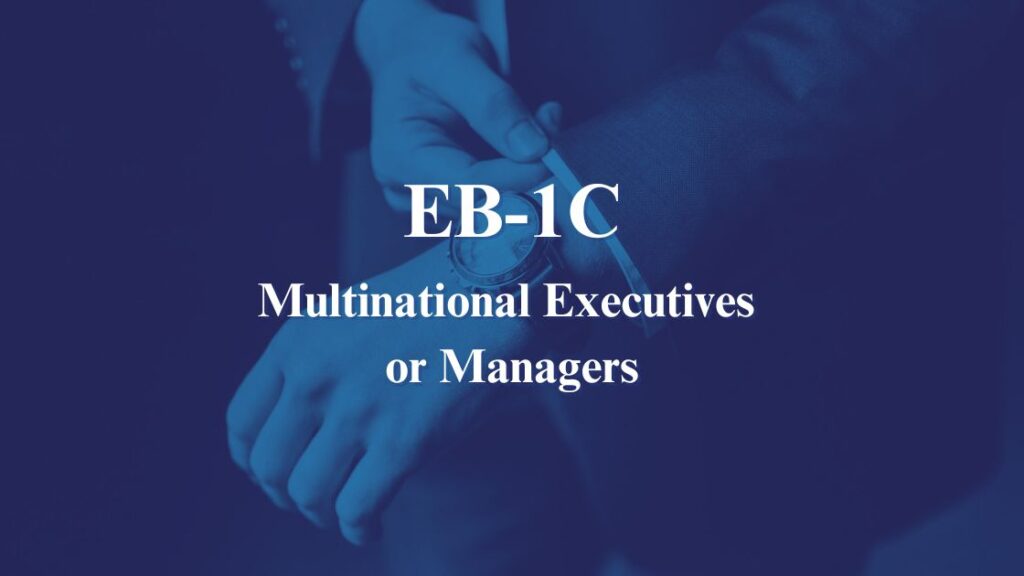
Multinational Executives or Managers (EB-1C)
- Prior Managerial Experience Abroad: The applicant should have held a managerial or executive position outside the United States with the same multinational company, corporation, or legal entity for at least one of the three years preceding the application.
- Planned Managerial Role in the U.S.: The applicant intends to take up a managerial or executive position in the United States with the same employer, affiliate, or subsidiary as their previous role abroad.
- Commitment to Managerial Responsibilities: The applicant must demonstrate their readiness to continue performing managerial or executive duties upon relocating to the United States.
What Forms and Documents are Needed for the EB-1 Visa?
The EB-1 Visa application process requires the submission of various forms and supporting documents to establish eligibility. These may include:
- Form I-140, Immigrant Petition for Alien Worker: This serves as the main application form for the EB-1 Visa category.
Application Process
The application process for each category of EB-1 Visa varies:
- Extraordinary Ability: You may apply for yourself by filing a Form I-140, Petition for Alien Worker.
- Outstanding Professors and Researchers: Your U.S. employer must file a Form I-140. As part of this process, your employer needs to show that they can continue paying the offered wage by providing an annual report, federal income tax return, or audited financial statement.
- Multinational Manager or Executive: Your U.S. employer must file USCIS Form I-140. Similar to the outstanding professors and researchers category, your employer must demonstrate the ability to pay the offered wage with the same documentation.
Supporting documentation relevant to the specific category
- For EB-1A: Provide evidence of extraordinary ability, such as awards, publications, memberships, and significant contributions to the field.
- For EB-1B: Submit documentation of outstanding achievements as a professor or researcher, including publications, citations, peer reviews, and letters of recommendation.
- For EB-1C: Present evidence of a multinational executive or managerial role, including organizational charts, job descriptions, and proof of employment with the multinational firm.
Additional supporting materials may include letters of recommendation, employment contracts, academic credentials, publications, awards, and any other relevant documentation. For more information regarding EB-1, visit USCIS.
To ensure a seamless process, consider consulting with our experienced immigration attorneys at Ochoa & Hill Law Group. Contact us at (713) 984-4823 to schedule a consultation.
Disclaimer: The information provided above is not intended as legal advice. Each immigration case is unique, and individuals should seek personalized legal guidance.


